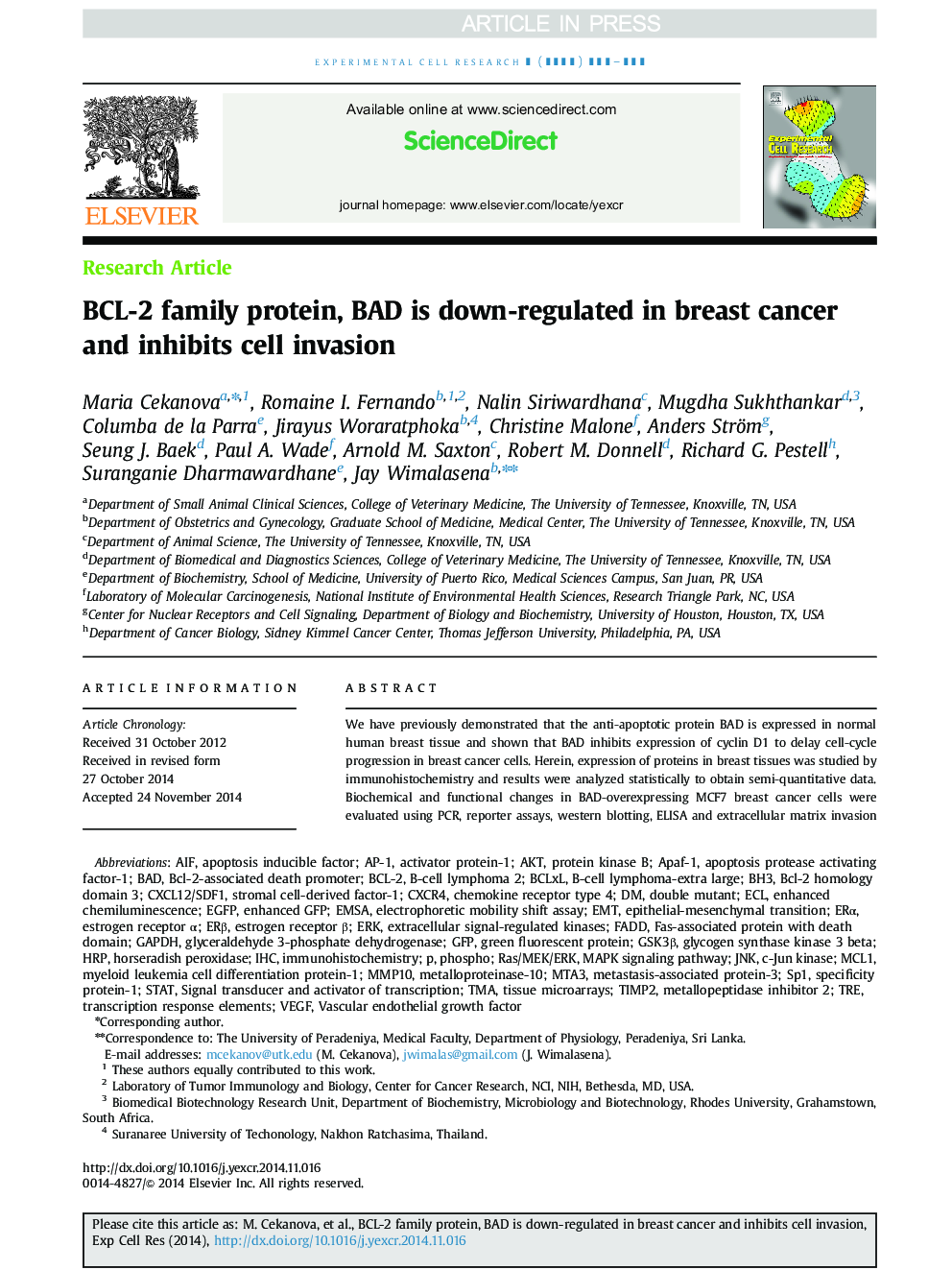| Article ID | Journal | Published Year | Pages | File Type |
|---|---|---|---|---|
| 10903926 | Experimental Cell Research | 2015 | 10 Pages |
Abstract
We have previously demonstrated that the anti-apoptotic protein BAD is expressed in normal human breast tissue and shown that BAD inhibits expression of cyclin D1 to delay cell-cycle progression in breast cancer cells. Herein, expression of proteins in breast tissues was studied by immunohistochemistry and results were analyzed statistically to obtain semi-quantitative data. Biochemical and functional changes in BAD-overexpressing MCF7 breast cancer cells were evaluated using PCR, reporter assays, western blotting, ELISA and extracellular matrix invasion assays. Compared to normal tissues, Grade II breast cancers expressed low total/phosphorylated forms of BAD in both cytoplasmic and nuclear compartments. BAD overexpression decreased the expression of β-catenin, Sp1, and phosphorylation of STATs. BAD inhibited Ras/MEK/ERK and JNK signaling pathways, without affecting the p38 signaling pathway. Expression of the metastasis-related proteins, MMP10, VEGF, SNAIL, CXCR4, E-cadherin and TlMP2 was regulated by BAD with concomitant inhibition of extracellular matrix invasion. Inhibition of BAD by siRNA increased invasion and Akt/p-Akt levels. Clinical data and the results herein suggest that in addition to the effect on apoptosis, BAD conveys anti-metastatic effects and is a valuable prognostic marker in breast cancer.
Keywords
FADDHRPBcl-2ERKECLAP-1enhanced GFPERαERβCXCR4APAf-1GSK3βTIMP2BH3apoptosis protease activating factor-1Bcl-2 homology domain 3BclXLMTA3EMSAeGFPGAPDHGFPTMAJnkc-Jun KinaseMcl1Sp1Electrophoretic mobility shift assaySTATAktAIFspecificity protein-1ImmunohistochemistryIHCBADenhanced chemiluminescenceEMTdouble mutantBreast cancerTREstromal cell-derived factor-1Vascular endothelial growth factorVascular Endothelial Growth Factor (VEGF)phosphoB-cell lymphoma 2B-cell lymphoma-extra largeSignal transducer and activator of transcriptionMetastasisBcl-2-associated death promoterMAPK signaling pathwaytissue microarraysHorseradish peroxidaseactivator protein-1green fluorescent proteinFas-associated protein with death domainprotein kinase Bextracellular signal-regulated kinasesEpithelial-mesenchymal transitionglyceraldehyde 3-phosphate dehydrogenaseglycogen synthase kinase 3 betaEstrogen receptor αEstrogen receptor βchemokine receptor type 4
Related Topics
Life Sciences
Biochemistry, Genetics and Molecular Biology
Cancer Research
Authors
Maria Cekanova, Romaine I. Fernando, Nalin Siriwardhana, Mugdha Sukhthankar, Columba de la Parra, Jirayus Woraratphoka, Christine Malone, Anders Ström, Seung J. Baek, Paul A. Wade, Arnold M. Saxton, Robert M. Donnell, Richard G. Pestell,
